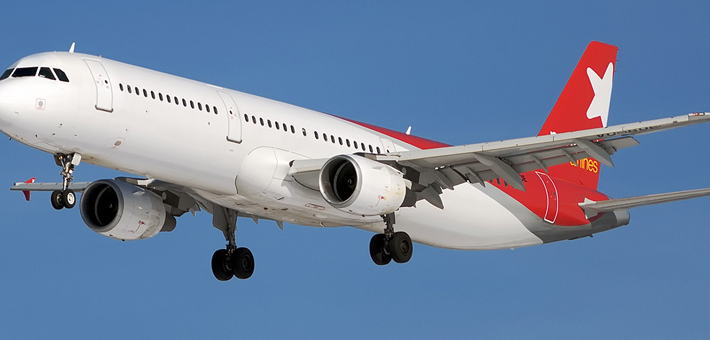
Delve into the advantages and disadvantages of each aircraft, explore the rich history and innovations of Airbus and Boeing, and gain expert insights into these popular airplane models. Discover the distinguishing features, performance capabilities, and applications of the Airbus A321 and the Boeing 737, and make an informed choice in your aviation endeavors.
Airbus and Boeing are synonymous with excellence in aircraft manufacturing, having revolutionized the aviation industry with their engineering prowess and groundbreaking designs. Airbus, a European conglomerate, and Boeing, an American corporation, have carved out distinct paths in commercial aviation, shaping the way we travel today.
Airbus A321: Maximizing Efficiency and Comfort
The Airbus A321 combines efficiency, capacity, and passenger comfort, making it a preferred choice for airlines across the globe. With an extended range and impressive fuel efficiency, the A321 is suitable for both short-haul and medium-haul flights. Its spacious cabin layout, advanced technology, and quieter engines contribute to an enhanced travel experience for passengers.
The Airbus A321 is a member of the popular A320 family and offers a range of advantages that contribute to its widespread adoption by airlines worldwide. With an extended fuselage compared to its A320 siblings, the A321 boasts increased seating capacity, making it an efficient choice for carriers looking to transport a larger number of passengers without compromising on fuel efficiency.
One of the notable features of the A321 is its impressive range capabilities. It is capable of flying non-stop on both short-haul and medium-haul routes, allowing airlines to efficiently serve a wide range of destinations. This range flexibility is particularly valuable for carriers operating in diverse market segments.
Passenger comfort is another area where the A321 excels. The aircraft’s spacious cabin layout enables airlines to provide ample legroom and comfortable seating arrangements, enhancing the overall travel experience for passengers. Additionally, the A321 incorporates advanced technology, including state-of-the-art avionics and entertainment systems, to ensure an enjoyable and connected journey.
Moreover, the A321 boasts significant advancements in terms of noise reduction and environmental sustainability. It features innovative engine technology, such as the Pratt & Whitney PW1000G geared turbofan engines or the CFM International LEAP engines, which provide enhanced fuel efficiency and reduced emissions, aligning with the industry’s focus on eco-friendly operations.
Boeing 737: Unmatched Reliability and Versatility
The Boeing 737 is a legendary aircraft that has left an indelible mark on the aviation industry. With a heritage spanning several decades, the 737 has become the backbone of countless airlines across the globe, offering exceptional reliability, versatility, and operational efficiency.
One of the key advantages of the Boeing 737 is its proven track record for reliability. With millions of flight hours accumulated by the various 737 models, the aircraft has demonstrated its robustness and ability to perform consistently in demanding operating conditions. Airlines rely on the 737’s solid reputation for on-time performance and dependability to ensure smooth operations.
The versatility of the Boeing 737 is also a significant factor contributing to its popularity. The aircraft is available in a range of variants, including the 737-700, 737-800, and the latest generation 737 MAX series. These variants offer different seating capacities, range capabilities, and fuel efficiencies, allowing airlines to select the model that best suits their specific operational requirements.
Furthermore, the Boeing 737 benefits from the continuous advancements in avionics and aerodynamics. The latest models, such as the 737 MAX, incorporate state-of-the-art technology to enhance fuel efficiency, reduce emissions, and improve overall performance. The aircraft’s advanced flight deck systems, including the Boeing Sky Interior with modern cabin designs and passenger-friendly features, contribute to an enhanced in-flight experience.
The Boeing 737’s reputation for reliability, versatility, and continuous innovation has solidified its position as a preferred choice for airlines of all sizes, operating various types of routes, from short-haul flights to longer-range operations.
Overall, both the Airbus A321 and the Boeing 737 are formidable aircraft, each with its own set of advantages and strengths. The decision between these two aircraft models often depends on an airline’s specific operational requirements, route networks, and passenger preferences, highlighting the diverse needs of the aviation industry.
The Boeing 737 has earned its reputation as a workhorse in commercial aviation, renowned for its reliability, versatility, and cost-effectiveness. This narrow-body aircraft excels in various operational environments, offering improved fuel efficiency and advanced avionics systems. With a multitude of variants and configurations, the Boeing 737 can be tailored to meet the specific needs of airlines and passengers.
Conclusion
In the dynamic world of commercial aviation, the Airbus A321 and the Boeing 737 stand out as formidable rivals, each with its own set of advantages and disadvantages. The Airbus A321 showcases efficiency, extended range capabilities, and a comfortable cabin environment, appealing to airlines seeking optimal performance and passenger satisfaction. Meanwhile, the Boeing 737 boasts a legacy of reliability, versatility, and cost-effectiveness, making it a popular choice among airlines worldwide.
When selecting between the Airbus A321 and the Boeing 737, factors such as route profiles, passenger capacity requirements, and operational preferences come into play. Both Airbus and Boeing continue to push the boundaries of innovation, ensuring that their respective aircraft models remain at the forefront of commercial aviation.
As an aviation enthusiast or a discerning traveler, you can take solace in knowing that both Airbus and Boeing bring their expertise, decades of experience, and commitment to safety to every flight. Whether you find yourself on an Airbus A321 or a Boeing 737, rest assured that you are soaring through the skies o